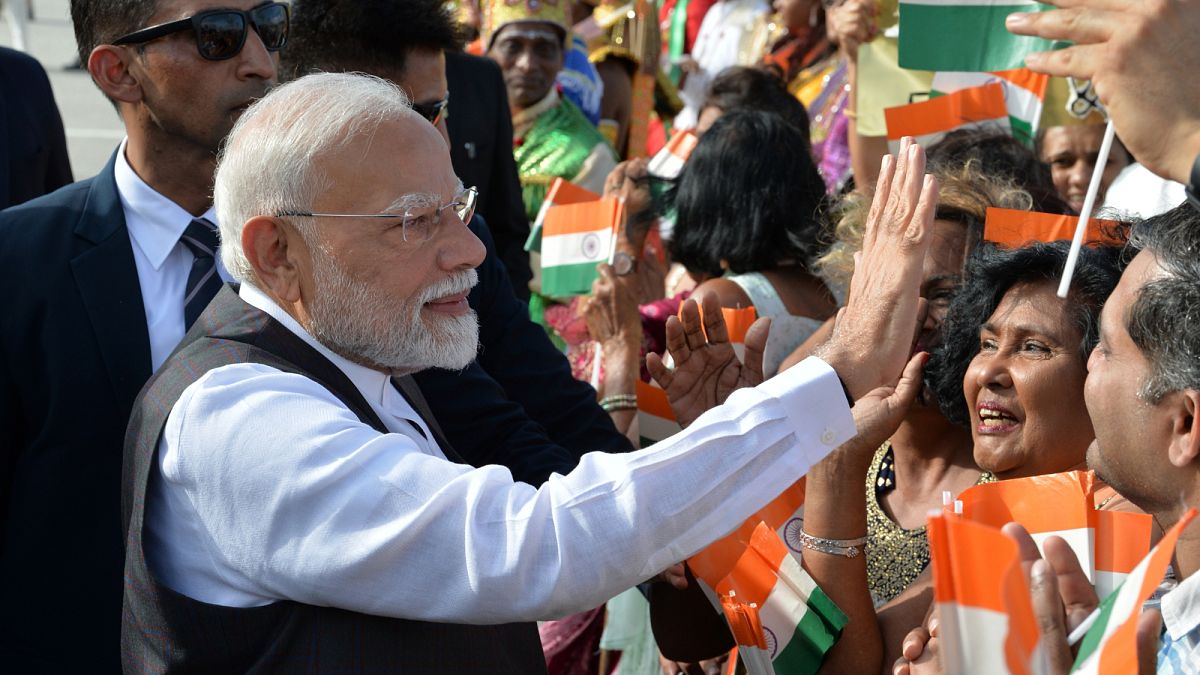

Worldwide diplomatic efforts are experiencing a wave of positive momentum, as key international players engage in dialogues poised to shape the future of global relationships and regional stability.
In a significant show of strengthening international ties, Indian Prime Minister Narendra Modi highlighted the “great potential” in relations with Trinidad and Tobago. During his visit, Modi received a warm welcome, particularly from the country’s Hindu community, underscoring the cultural ties that bind the two nations. Despite some criticism from Trinidad and Tobago’s Muslim community, the visit emphasized the collaborative potential between the nations, particularly in areas of economic and cultural development.
In parallel, international focus remains on Ukraine as geopolitical conversations continue to unfold. U.S. President Donald Trump and Ukraine’s President Volodymyr Zelenskyy recently engaged in a productive phone conversation, agreeing on joint defense efforts amidst ongoing conflict. This discussion followed a candid dialogue between Trump and Russian President Vladimir Putin, hinting at a wider strategy to address regional tensions involving Ukraine, Russia, and Iran. Further bolstering these diplomatic efforts, the United Kingdom is set to host a “coalition of the willing” meeting, spearheaded by France and the U.K., next week. The agenda will center on providing security assurances to Ukraine, a move critical to its defense architecture.
Simultaneously, the landscape of Middle Eastern diplomacy is undergoing potential transformation. Sources close to Hamas indicate that a ceasefire agreement with Israel is on the horizon, providing hope for a lasting resolution to the 20-month conflict in Gaza. Although Hamas seeks stronger guarantees for a permanent cessation of hostilities, optimism remains that the ongoing dialogues, endorsed by international figures including President Trump, will pave the way toward stability. Israeli Prime Minister Benjamin Netanyahu’s upcoming visit to the United States on July 7 could further catalyze these efforts, as diplomatic channels work toward a resolution that benefits all stakeholders.
Meanwhile, in France, President Emmanuel Macron is navigating domestic and environmental challenges with a new proposed law allowing increased culling of wolves, following the European Union’s adjustment in protective statuses for certain wildlife. The decision reflects growing tensions between wildlife conservation efforts and farmers’ needs to protect their livestock, an issue resonating across rural Europe.
Collectively, these events demonstrate the delicate balance of diplomacy and dialogue shaping current international relations. As leaders across the globe engage in discussions aimed at fostering cooperation and understanding, there is a prevailing sense of cautious optimism. These varied but connected diplomatic undertakings signify a phase where nations strive to solve pressing issues through negotiation and mutual concessions, nurturing a world where international collaborations pave pathways to peace and prosperity.
Source: {link}
